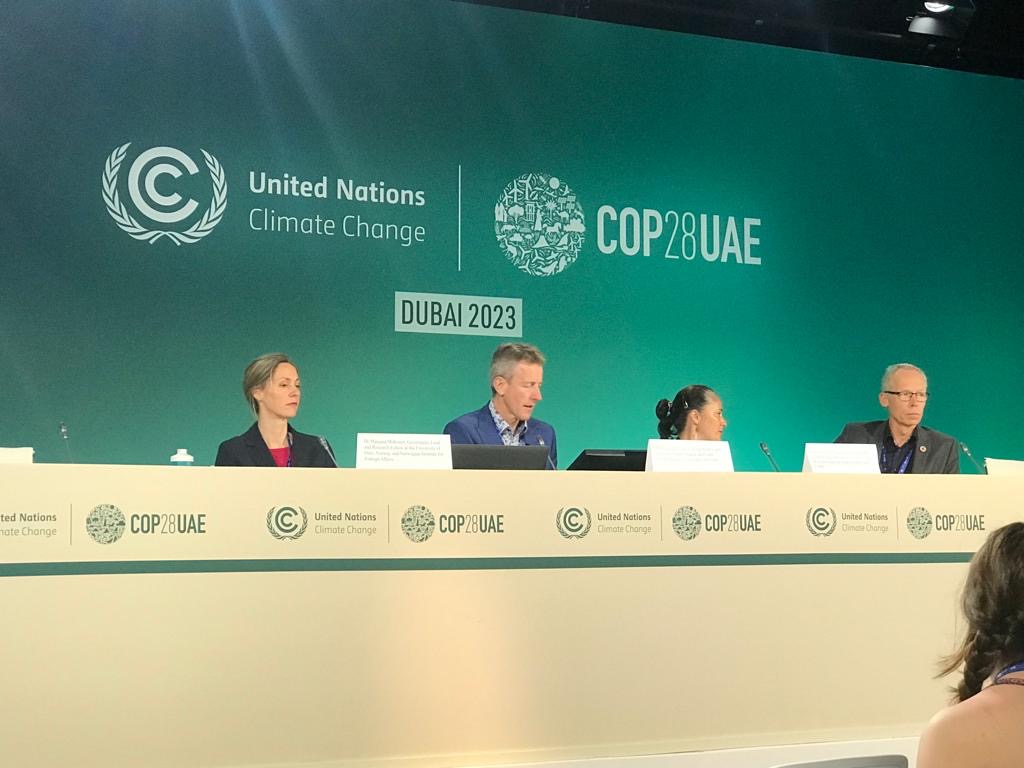Today marked a key moment for the ocean and wider climate discussion at COP28.

A new earth system tipping point report was launched warning that Earth system tipping points are likely to be triggered due to climate change. Scientists say the future of billions of people depend on how fast fossil fuels will be phased out by zero-carbon solutions.
The report was the result of a huge collaborative effort - produced by an international research team of more than 200 researchers, including from NOC.
The message is clear: “business as usual” is no longer possible – with rapid changes to nature and societies already happening, and more coming.
The report authors are calling for emergency global action, accelerated by leaders meeting now at COP28, which can harness positive tipping points and steer us towards a thriving, sustainable future.
What is a tipping point?
A tipping point occurs when a small change sparks an often rapid and irreversible transformation, and the effects can be positive or negative. The report says a cascade of positive tipping points would save lives, billions of people from hardship, trillions of dollars in climate-related damage, and begin restoring the natural world upon which we all depend.
What do our scientists say about the report?
NOC scientists Drs Yevgeny Aksenov, Stefanie Rynders and Bablu Sinha led analysis of tipping points in the Atlantic Ocean circulation and of tipping points cascades caused by Arctic sea ice decline.
Dr Bablu Sinha commented:
“There is good evidence that a tipping point exists in the Atlantic Meridional Overturning Circulation (AMOC), in the North Atlantic Subpolar Gyre (SPG) such that the AMOC may collapse in a warmer climate, although we are not sure exactly when this might occur and what warming threshold is required. If it does happen, the consequences would be severe. Potential impacts include changing weather patterns over Europe and in tropical (monsoon) regions, reduced biological productivity in Atlantic bordering regions; reduction in tropical rainforest cover and reduced agricultural output globally.”
Dr Stefanie Rynders, added:
“Arctic sea ice loss leads to increased coastal permafrost erosion. Abrupt changes in summer-autumn sea-ice retreat from the permafrost coast leads to an increase in waves, resulting in an increase in erosion rates in the last 50 years, a two- to fourfold increase in hotspots in the Laptev and Beaufort Seas. Coastal permafrost collapse leads to a potential cascading effect and risk of carbon release locally to the Arctic Ocean and the atmosphere. The erosion causes changes of the shoreline and in carbon, nutrients and contaminant concentrations in the coastal seas and offshore marine environment.”
Dr Yevgeny Aksenov continued:
“Changes in the ocean and marine ecosystems can occur on timescales from years to a few decades. However, some tipping points can unfold over centuries to millennia, such as permafrost thawing or loss of glaciers. Multiple evidence for fast changes in the cryosphere suggest that we are getting dangerously close to the temperature thresholds of some major tipping points for the ice sheets of Greenland and West Antarctica with unavoidable long-term global sea level rise. While evidence for global-scale tipping dynamics in sea ice and permafrost is limited, their decline will continue with global warming. These, largely irreversible, changes might already have triggered impacts for ecosystems, threatening human society.”
The report was launched at the Global Tipping Points Report 2023 press conference in COP28's Blue Zone.